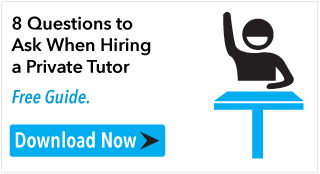Let's look at some tips that can help to improve your GRE Verbal score. The GRE's Verbal section includes three main question types: text completion, sentence...
Preparation Tips for the GRE Verbal Section
 The verbal section of the GRE consists of three types of questions: reading comprehension, text completion, and sentence equivalence. Since the ability to analyze texts critically is of fundamental importance in research, a good score on the verbal section of the GRE is very reassuring to graduate admission committees.
The verbal section of the GRE consists of three types of questions: reading comprehension, text completion, and sentence equivalence. Since the ability to analyze texts critically is of fundamental importance in research, a good score on the verbal section of the GRE is very reassuring to graduate admission committees.
The best preparation you can do (apart from lots of practice tests) for the verbal section of the GRE is read a lot of classic literature. This will expand your vocabulary and expose you to clever or uncommon but grammatically correct linguistic constructions. The important thing is to find literature that you enjoy, so that you read a lot and retain a lot of what you read.
Unfortunately, the large variance in the standard of online and print media has led to a widespread acceptance of malapropisms and incorrect usage that flout the conventions of academic writing. A lot of popular fiction is also poorly written from a grammatical standpoint, so your best bet if you want to improve your reading and writing ability is to read the works of acknowledged masters of style. Perhaps you will like John Steinbeck or Mark Twain or Chinua Achebe or George Orwell or Jhumpa Lahiri. The New Yorker magazine is a treasure trove of in-depth and well-written articles that are a smaller investment of time than full novels.
However, this approach takes time. If you find in your practice tests that your vocabulary is woefully inadequate and time is short, you have no choice but to try the brute force approach of memorizing the definitions of the words on various GRE vocabulary lists available online or in test preparation manuals. Try to use these words as much as possible in your everyday conversation and writing.
About half the questions in the verbal section of the GRE test your ability to comprehend and critically analyze passages of text, which may be drawn from literature, humanities, social sciences, business, arts, or natural sciences, but will not be laced with lots of technical jargon. There will be between one and six questions per passage, so you'll have to read a fair amount of text. Make sure you don't rush through the reading – ideally you'll read each passage just once, making short notes and underlining as necessary so that you can answer all the questions from your recollections and notes. However, you can't go too slow since there is a time limit.
The only way for you to understand how fast you need to read (while thoroughly comprehending the material) is to do lots of practice tests. Be sure to time yourself on your practice tests, noting how long you spent reading vs. answering questions, and see if you need to read a bit faster.
Apart from answering questions on complete passages, you will also be presented with some passages one to five sentences long containing one or more blanks (sentence completion questions). You will have to select the answer containing the ordered list of words that best completes the sentence or paragraph. Once you have made you selection, check to make sure that the passage is logically, stylistically, and grammatically coherent.
The remainder of the test will consist of sentence equivalence questions, in which you will be presented with a single sentence containing just one blank. You must choose two of the six answer choices such that if either word is inserted in place of the blank, the resulting sentence is equivalent in meaning. Note that this is not simply an exercise in picking synonyms out of the answer list, since one of the synonyms may not fit the grammatical or logical structure of the sentence.
Almost everyone finds the verbal section of the GRE challenging, so plan to dedicate substantial time to preparing for it in the months prior to the test.
Mo is an experienced SAT, ACT, and GRE tutor in Chicago who also tutors a wide variety of college level math and science course. He completed his BS in chemical engineering at Berkeley and his MS and PhD at Northwestern University, after which he worked in mathematical research at a trading firm. He scored 1560 on the SAT and a 1580 on the GRE (both out of 1600 – 99th percentile test scores).

